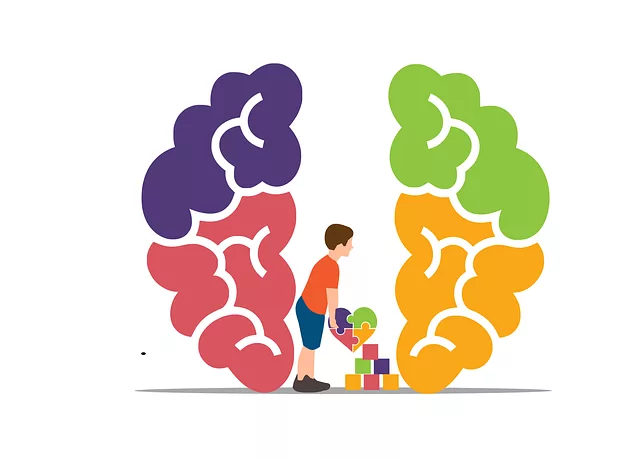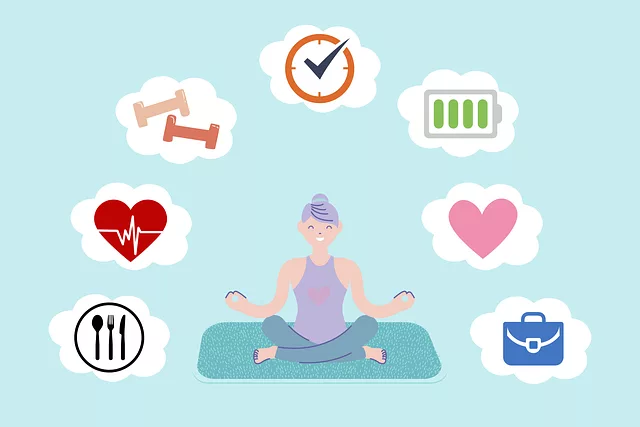Burnout among healthcare providers, particularly in mental health fields, is a growing concern impacting well-being and patient care quality. Caused by high workloads, demanding patients, and lack of support, burnout manifests as emotional exhaustion, depersonalization, and reduced personal accomplishment. Aurora Kaiser's innovative mental health classes offer valuable tools for enhancing self-awareness, emotional resilience, and confidence in high-pressure situations, leading to improved well-being, job satisfaction, and better patient outcomes. Organizations can foster a culture of prevention through regular Aurora Kaiser mental health classes and workshops, encouraging open discussions about work-life balance and stress management.
Healthcare provider burnout is a growing concern, impacting patient care and well-being. This article explores strategies to prevent burnout among healthcare professionals, focusing on the empowering role of mental health classes like those offered by Aurora Kaiser. We delve into effective mitigation tactics, from stress management techniques to organizational changes, to create a healthier work environment. Understanding burnout’s signs and implementing these strategies can foster resilience and enhance job satisfaction in this demanding field.
- Understanding Burnout Among Healthcare Providers
- The Role of Mental Health Classes in Prevention
- Implementing Effective Burnout Mitigation Strategies
Understanding Burnout Among Healthcare Providers

Burnout among healthcare providers is a growing concern that affects not just individual well-being but also the quality of patient care. It’s characterized by emotional exhaustion, depersonalization, and reduced personal accomplishment—a state often driven by high workload, demanding patients, and lack of support. Healthcare professionals, especially those in mental health fields like Aurora Kaiser’s mental health classes, are at heightened risk due to the intense emotional demands of their work.
Understanding burnout involves recognizing that it’s not just about work-life balance but also about the interplay between personal resilience, institutional culture, and systemic pressures. Emotional healing processes, such as those taught in mental health policy analysis and advocacy programs, play a crucial role in mitigating burnout. Fostering positive thinking and supportive environments can enhance coping mechanisms, improve job satisfaction, and ultimately contribute to better patient outcomes.
The Role of Mental Health Classes in Prevention

In the ongoing quest to combat healthcare provider burnout, mental health classes emerge as a powerful tool for prevention. Aurora Kaiser, renowned for her expertise in the field, offers programs that delve into Self-Awareness Exercises and Mental Health Awareness. These classes are designed to equip healthcare professionals with strategies to enhance their resilience and well-being. By fostering better understanding of their own emotions and stress responses, providers can develop healthier coping mechanisms, thereby reducing the risk of burnout.
The curriculum often includes Confidence Boosting techniques tailored to meet the unique challenges faced by healthcare workers. Through interactive sessions, participants learn to navigate high-pressure environments with composure and poise, leading to improved job satisfaction and reduced strain on mental health. By investing in these mental health classes, healthcare organizations can foster a culture that prioritizes prevention, ultimately leading to happier, more effective teams.
Implementing Effective Burnout Mitigation Strategies

Implementing effective burnout mitigation strategies is crucial for healthcare providers to maintain optimal mental wellness and ensure patient care quality. Organizations can foster a culture that prioritizes prevention through regular Aurora Kaiser mental health classes and workshops, encouraging open discussions about work-life balance and stress management. These initiatives not only equip professionals with coping mechanisms but also promote a collective sense of resilience within the healthcare community.
Additionally, integrating Mental Wellness Coaching Programs Development into standard practice can significantly enhance burnout prevention strategies. Personalized coaching sessions help providers identify triggers, set boundaries, and develop sustainable self-care practices. By addressing individual needs, these programs contribute to a happier, healthier workforce, ultimately reducing absenteeism and improving overall job satisfaction in the long term.
Healthcare provider burnout is a growing concern, but with the right strategies, it can be mitigated. By understanding the unique challenges faced by healthcare professionals and implementing evidence-based solutions like those offered by Aurora Kaiser mental health classes, we can foster a more resilient and satisfied workforce. Effective burnout prevention involves creating supportive environments, promoting work-life balance, and ensuring access to resources for mental well-being. These proactive measures are crucial steps towards a healthier and happier healthcare system.






